Isaiah 11:1-5; Romans 1:1-7; and Luke 4:16-21
In the name of Jesus. Amen.
Our text from Isaiah 11 tonight (Is. 11:1-5) refers to a shoot, a root, and fruit that will come from a branch rising from an unexpected place – the stump of Jesse. Then, the verses that come immediately after this text (Is. 11:6-10) talk about predators lying down with things that are normally their prey, but none will be hurt or destroyed. Instead, that root of Jesse will be a glorious resting place for all nations. Now, if that portion of Isaiah makes it sound like creation will be restored, you’re hearing it right. All creation will be restored. A harvest of the fruit of liberty will spring from the stump of Jesse.
Our Epistle reading (Ro. 1:1-7) talks about this same Shoot, Jesus, being descended from David. It says that He was declared to be the Son of God in power by His resurrection (Ro. 1:3-4). So, in our reading from Is. 11, we have a picture of hope rising from barrenness, and in our reading from Ro. 1, we have a picture of power from an ancient, kingly line. Now, it might not seem like it at first, but these two pictures are completely compatible.
Many of you know this, but in case you don’t: the Jesse mentioned here in Isaiah was the father of King David. Jesse only does two things in the Bible. In 1 Sam. 16:1-11, Jesse is there when David is anointed to be king after Saul, and he is briefly mentioned in 1 Sam. 17:17-20 when he sends David to see how the fighting is going against the Philistines. David, Jesse’s son, far eclipses his father in the Bible.
That’s why that reading from Isaiah mentions the stump of Jesse and not the stump of David. Isaiah is prophesying that there will be a new David – One who is like David but who will far surpass even what David did. That One is Jesus, who will come and make all things new. The Spirit of God will rest upon Him. The Spirit of wisdom and understanding, the Spirit of counsel and might, the Spirit of knowledge and fear of Yahweh. This Jesus will be a new and greater King, greater even than David was.
King Jesus will judge the poor “with righteousness” (Is. 11:4a). Normally, when we hear about judging, it means to condemn, but here it means that King Jesus will come to make things right for the poor. King Jesus will, “decide with equity for the meek of the earth” (Is. 11:4b). Unlike the ‘equity’ we hear about today, the kind of equity Isaiah speaks about is a good thing. For the meek and powerless – King Jesus will use His power to make things right.
To summarize what Isaiah is saying in that passage: King Jesus is going to do a whole lot more than simply make the world a little bit better. He is going to defeat death and all violence. He will put an end to suffering. He will restore everything to the way it was in the unshattered bliss of the Garden of Eden.
In Luke 2, we see just how far King Jesus will go to rescue the poor. The Son of God was born not like the son of a powerful general in a mansion, or like a prince in a palace. He was born into the family of a poor carpenter in the tiny village of Bethlehem. He will preach, teach, heal, and die. But from the darkness and gloom of His grave, King Jesus will powerfully rise again (Ro. 1:4).
Now, we’re going to change gears a little bit because we have to consider the Gospel reading (Lk. 4:16-21). One Sabbath, Jesus comes to His hometown of Nazareth, where He had been raised as a Child, and He enters the synagogue. Back in those days, they used a lectionary like we do in church. Certain passages of Scripture were read at different times during the year. That day, the reading was from the prophet Isaiah, and it was Jesus’ turn to read. So, the attendant hands Jesus the scroll.
The way Luke records this, it seems like the attendant had unrolled that scroll to the reading for that day, but Jesus turned the page (I know that’s not how it works with a scroll, but you get the idea), and Jesus reads from a different passage. What He reads is mostly from Isaiah 61:1-2, which was understood to be about the Messiah. The themes of what Jesus reads are very similar to our text from Isaiah 11 tonight, but they are different.
Now, if you read Is. 61:1-2, you’ll see that Jesus does something very interesting. He reads, “The Spirit of Yahweh God is upon Me.” Remember that’s what happened at Jesus’ Baptism. The Holy Spirit descended like a dove and rested upon Him (Mt. 3:16; Jn. 1:33). He continues, “Because [Yahweh] has anointed Me.” The Hebrew word there is the where get our word ‘Messiah,’ and in Greek it would be ‘Christ.’ They both mean ‘anointed one.’ For what purpose did God anoint Jesus?
Jesus keeps reading, “To proclaim good news to the poor. He has sent Me to proclaim liberty to the captives and recovering of sight to the blind.” That part about the blind is actually from Is. 42:7 which is a few inches above what He was already reading. Then, Jesus goes back to Is. 61, “To set at liberty those who are oppressed, to proclaim the year of Yahweh’s favor.”
Then, with the reading finished, Jesus rolls up the scroll, hands it back to the attendant, and sits down, which is how they would preach in those days. (When I get older and more frail, we’ll remember this and get a preaching chair for me.) The eyes of everyone in the synagogue were fixed on Him. They’re holding their breath to hear what He will preach. But before we consider what He preached, we need to realize something.
This likely took place about one year into Jesus’ ministry. The people had heard that He had been Baptized in the Jordan. They knew that He had turned water into wine, cleansed the Temple, and had done many miracles. They hoped that He would do some of those miracles now, here in His hometown (Lk. 4:23). But Jesus doesn’t. He just sits and preaches this message: “Today this Scripture has been fulfilled in your hearing.”
There’s more interaction that takes place between the congregation and Jesus that we didn’t hear tonight. But, when Jesus is done preaching, the people drive Him out of the synagogue, out of the town, out to a cliff, and are ready to toss Him over the edge to kill Him. Now, I know I’ve preached some bad sermons in my fifteen years here, but no one has tried to throw me off a cliff afterward – not yet. Maybe, it’s just because we don’t have cliffs in this part of the world. Why do these people want to kill Jesus for His sermon?
Without a doubt, part of the reason was they recognized that Jesus was claiming to be the Messiah. But I think there was more to it than that. It was more personal. When Luke says that Jesus “began to say to them, ‘Today this Scripture has been fulfilled in your hearing’” (Lk. 4:21), that’s Luke’s shorthand way of saying he’s summarizing Jesus’ sermon. So, if it was true that the Scripture was fulfilled and good news was being proclaimed to the poor, liberty was being proclaimed to the captives, the recovering of sight was being proclaimed to the blind, and liberty being given to those who are oppressed, do you see what Jesus is calling His hearers through His sermon? He’s saying that they are the poor; they are the captive; they are the blind and the oppressed. They don’t like hearing that, so they want to get rid of Jesus.
Let’s take all of this and apply it to us. First, as we share the Gospel with others, we should be ready for the proclamation that Jesus is the Savior for the poor, captive, blind, meek, and oppressed, we should be ready for that to be rejected simply because all sinners, including us, don’t want to hear that they are those things. If you walked up to a stranger and said, “Jesus forgives you all of your sins,” yes, you are sharing the Gospel with them, but they’re probably going to be offended. They’ll probably respond, “Listen, I’m a good person. Why are you calling me a sinner? Get away from me.”
It’s better to let Christ’s light and love shine through you by being kind, gentle, and merciful and be ready to share why you are those things. Tell them, “God has been kind, loving, and forgiving to me.” With people you know better, just be patient. Eventually, they’ll tell you about their sins, even though they probably won’t use the word ‘sin.’ They’ll talk about their failures, shortcomings, or mistakes. And be ready to share how Christ covers all of those for you.
And as we wrap up this Advent series, that leads to the second way this text applies to us. When God advents (i.e. when He comes), He comes to restore you (Gen. 3:9). They day is soon coming when Christ will return to judge the living and the dead. Until then, you be humble. Be quick to repent. Be quick to believe all that God says to you. When God calls you a sinner, believe Him. When God says that He is faithful and just to forgive sinners and to cleanse them from all unrighteousness (1 Jn. 1:9), believe that too.
Dear saints, the abundant fruit of liberty, forgiveness, and life comes from a place where we would not expect it to come. From the stump of Jesse, from that seemingly dead root, God caused Jesus to sprout, grow, blossom, and bear fruit. Through Jesus, and through Him alone, you have good news. You have liberty. And you have the Lord’s favor. All of that is yours because Jesus has come and defeated sin and death by His cross and resurrection. And He is coming again to bring you to the fullness of His salvation and to eternal life. Amen.
The peace of God, which surpasses all understanding, will guard your hearts and minds in Christ Jesus. Amen.


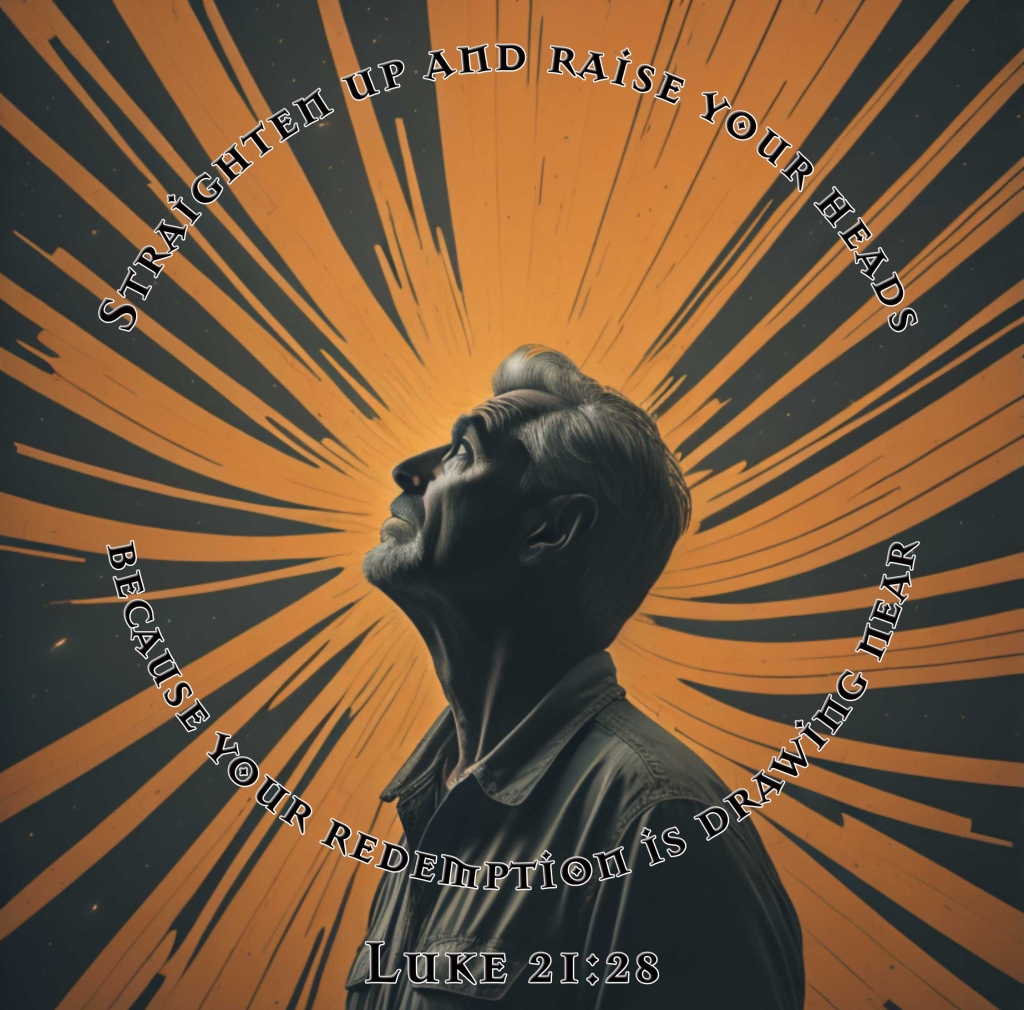

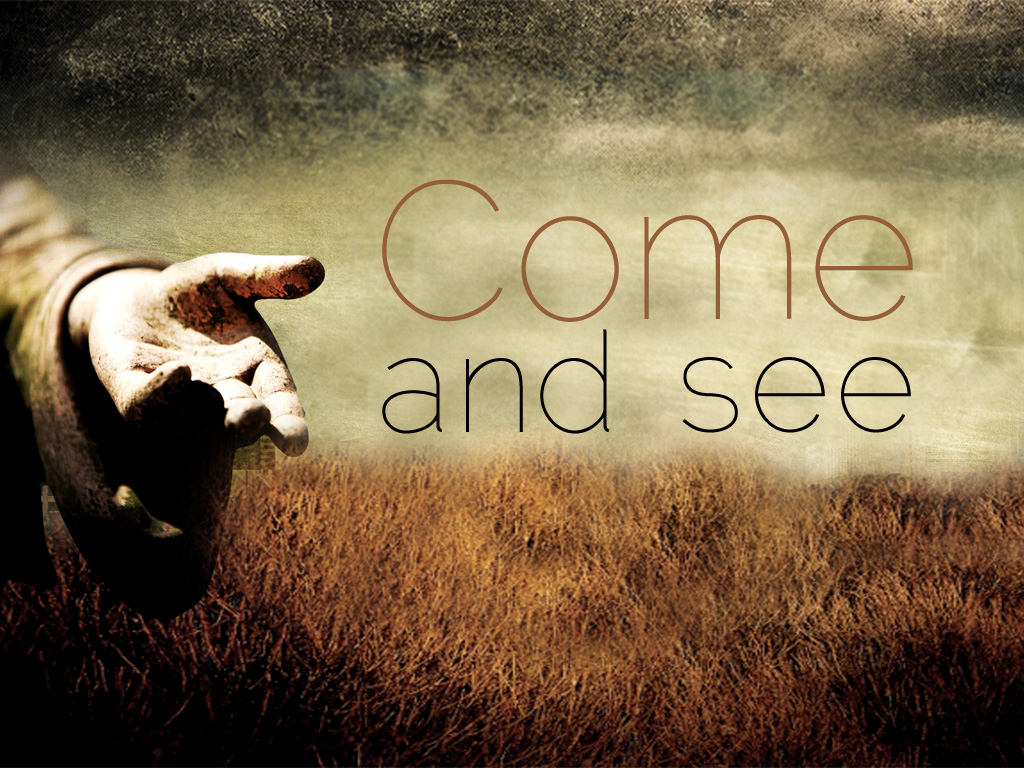
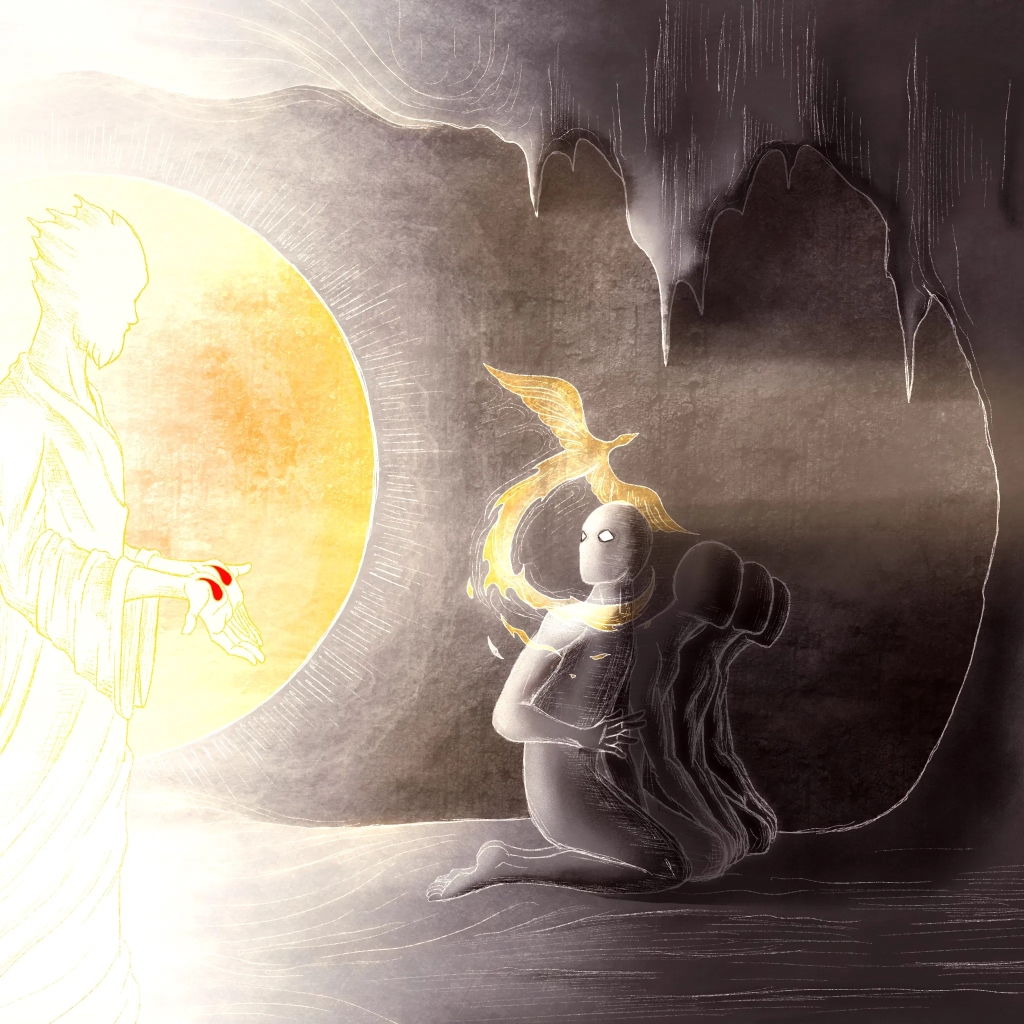
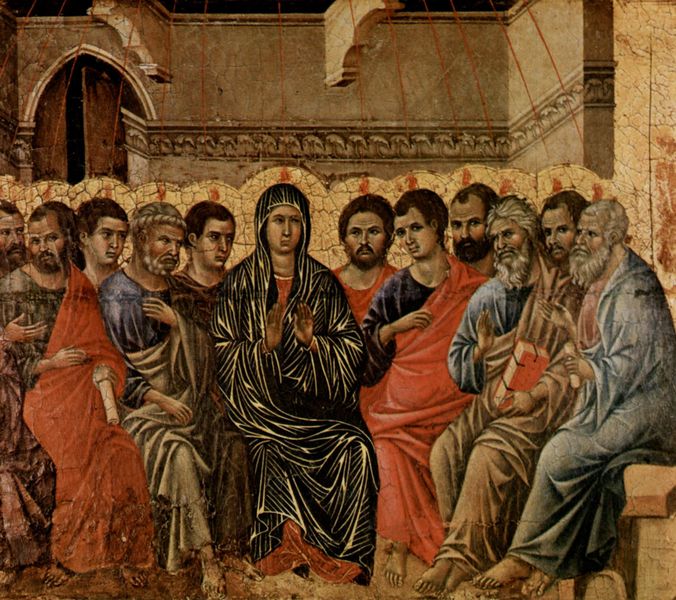 1 When the day of Pentecost arrived, they were all together in one place. 2 And suddenly there came from heaven a sound like a mighty rushing wind, and it filled the entire house where they were sitting. 3 And divided tongues as of fire appeared to them and rested on each one of them. 4 And they were all filled with the Holy Spirit and began to speak in other tongues as the Spirit gave them utterance.
1 When the day of Pentecost arrived, they were all together in one place. 2 And suddenly there came from heaven a sound like a mighty rushing wind, and it filled the entire house where they were sitting. 3 And divided tongues as of fire appeared to them and rested on each one of them. 4 And they were all filled with the Holy Spirit and began to speak in other tongues as the Spirit gave them utterance.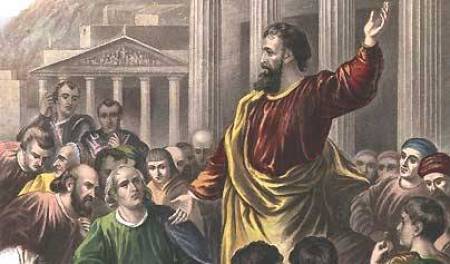 We didn’t hear Peter’s whole sermon. It goes on for another fifteen verses, but I want you to hear the highlights of the whole thing. In the part of Peter’s sermon that we did hear, Peter tells the people that, if they had read their Bible, wouldn’t have been surprised at what they are hearing because it had been foretold in the prophet Joel. Then, Peter goes on to proclaim Jesus to the people.
We didn’t hear Peter’s whole sermon. It goes on for another fifteen verses, but I want you to hear the highlights of the whole thing. In the part of Peter’s sermon that we did hear, Peter tells the people that, if they had read their Bible, wouldn’t have been surprised at what they are hearing because it had been foretold in the prophet Joel. Then, Peter goes on to proclaim Jesus to the people. So you, when the Law comes and points its finger at you and declares you to be a sinner, don’t make excuses. Don’t try to turn the accusations away. Don’t try to put your own spin on it and say that at least you aren’t as bad as so-and-so. Instead, repent. Repent because the Holy Spirit wants you to know that Jesus came to save you who are lost in sin. That means that Jesus has come to save you and me.
So you, when the Law comes and points its finger at you and declares you to be a sinner, don’t make excuses. Don’t try to turn the accusations away. Don’t try to put your own spin on it and say that at least you aren’t as bad as so-and-so. Instead, repent. Repent because the Holy Spirit wants you to know that Jesus came to save you who are lost in sin. That means that Jesus has come to save you and me.
You must be logged in to post a comment.